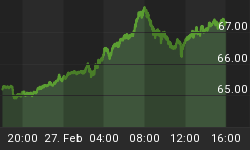Selective rather than common interest would better describe the present global economic resource allocation system. The quest for selective interest can historically be traced back to the times of the great land and sea empires. The term common interest has always been used to rationalize bias in human entitlements.
Selective interest has a lot to do with the purchasing power that most Americans, Japanese and Western Europeans have come to expect. Common selected interest through shared prosperity and unilateral right by the United States to use power projection was framed by these players in the decentralisation that occurred to cement closure of WWII.
This decentralisation was held together by the gold standard, the concentration of economic power in US markets, military presence, and the threat of communism. The misallocation of capital, a period of time also described in terms of the peace dividend, allowed the defense of selective interest to erode and because of perception and bias this erosion may be irrevocable.
We believe therefore that the framework of interdependent global economic relationships, erroneously defined through the bias described as "common interest," but as we have defined as selective interest nears the end of its life cycle as we know it.
Consensus, forced through the projection of power, does not exist at the level of commitment needed to clarify which nations regions and people will be beneficiaries of selective rationing going forward. Economic adjustment and war will provide the clarification.
From the other perspective, as people worldwide are demanding better economic prospects they are contending with the wealthy people of the world for scarce or finite resources. The wealthy people of the world are only wealthy by convention.
Central banks, reserve currencies, designed interdependence between nations, and military force projection, are some of the mechanisms and tools that defend the interests of the relatively few people in the world who benefit from the global wealth allocation scheme.
Selected interest needs to be continually defended thus at points in time where the will to defend the status quo dwindles so does the privilege and prospects of selected interests wane. The abandonment of the gold standard and the Vietnam war provide indicators when the will to defend selected interest.
Without the gold standard, central banking institutions have become a sophisticated extension of power projection that seeks to impose and defend economic stability of selected interest. The military projection of force and the economic projection of power through trade agreements are additional supports for selected interests. Today these forces are waning.
Most people in the United States don't realize that we would be hard pressed to accept a standard of living on parity with levels present in much of the world. Poor people have a propensity to make other people poor. People in many regions of the world will be hard pressed to serve our selective interests going forward.
Regions that have ownership of scarce resources, common religious bonds, historic identifies with empire, or past visions of greatness do not share a common interest with having the United States continue on as the worlds most privileged nation.
Rationing to selective interests makes sense because energy, agriculture, and water are not produced or available in the necessary abundance. These necessities cannot be transported at affordable costs to provide all the worlds people with reasonable quality of life.
The selected interest of the United States has come under with the advent three contending blocks of common interest namely India-Russia-China, Germany-France, and Ottoman-Pan Islamic. Only Japan and parts of the old English Empire currently have interests that for the moment align.
Every now and again throughout history the convention of who gets to allocate scarce resources gets redrawn. Therefore, contention through economic conflict of war should be no surprise.
Some of the symptoms of erosion include the weakening of US reserve currency, the loss of the gold standard, constrained military projection, the dominance of artificial constructs in a virtual-financial based economy, unparalleled intervention in market allocation systems, a domestic command economy, and the emergence of regional contending powers.
It need not be a surprise to find out who has the most to lose in the zero sum equation of scarce resource allocation. The greatest users of resources have the most to lose.















